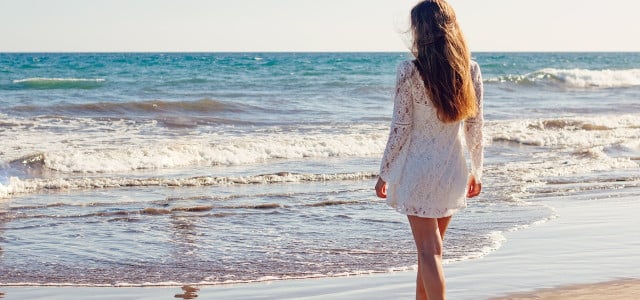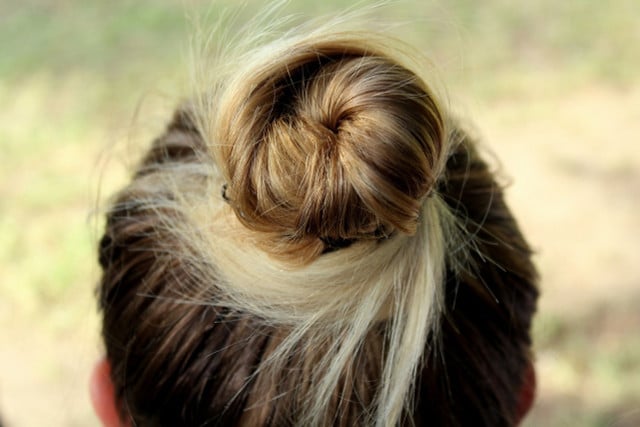
The sun bleaches and dries hair. Therefore, you should protect your hair from the sun. We’ll tell you how it works and what else you should watch out for.
It is a well-known fact that you should apply lotion to your skin before sunbathing in order to avoid sunburn and damage to the skin. You should also protect your hair from the sun. According to various studies, strong UV radiation can damage your hair, or rather the protein keratin and the dye melanin in it. The result is brittle and dry hair and a faded color.
This is how you protect your hair from the sun

(Photo: CC0 / Pixabay / _Alicja_)
To ensure that your hair survives the summer without much strain, it is worth adjusting your hair care seasonally. You don’t have to resort to expensive products for this. You can protect your hair from the sun with home remedies and simple tricks. And like this:
- The easiest way to protect your hair from the sun is to wear a cap, hat or thicker scarf on your head. A thinner fabric is not recommended as it lets UV rays through.
- If you have longer hair, you can braid it or put it up in a bun. This method covers at least part of your hair and protects it from the sun. If you then tie a scarf in your hair or put on a hat, the effect is hidden even further.
- There are many sprays available at drugstores designed to protect your hair from sun damage. This effect can also be achieved with vegetable oils, especially coconut oil. Coconut oil has a natural sun protection factor of four. Argan oil and sesame oil protect your hair with sun protection factor three. A study came to these values. Also, these vegetable oils help when your hair is dry. Before going out in the sun, you should put a dab of oil in your hair and distribute it evenly. Important: Sun protection with vegetable oils is not recommended for the skin. The sun protection factor is far too low to protect the skin. When choosing sun protection, the filters are also crucial. Chemical UV filters hold some questionable ingredients. An alternative are products with mineral UV filters.
- If you want to protect your hair from damage that can be caused by the sun, the right care should not be missing after a hot summer day. Coconut oil can also be used here. You can use it to make a conditioner and a hair treatment. Both protect and nourish your hair in summer.
Tip: Coconut, argan and sesame oil are not regional products and have to be imported from far away. On the one hand, this is possible with high CO2-Emissions from transport. On the other hand, the cultivation of the oil crops often takes place under environmentally and socially unacceptable conditions. Therefore, you should use organic, fair trade products. Pay attention to the fair trade seal and organic seal from Bioland, Naturland or Demeter.
Protect hair from the sun: don’t forget the scalp

(Photo: CC0 / Pixabay / webandi)
In addition to your hair, your scalp is also exposed to the sun. Since you can also get painful sunburn on your scalp on a bald head, side or center parting, protection is also recommended here. Here’s what else you can do besides wearing a hat:
- Use a sunscreen for your scalp that is easy to apply and non-greasy. Sun sprays are good for this, for example. If you want to protect your side parting, you can put some of the spray on your finger and apply the protection with it. This will prevent your hair from getting greasy.
- If you have a side or center part, you should part your hair in a different place each time you wash it. This ensures that not only one part of your scalp is exposed to the sun.
Tip: Conventional sun creams contain chemical UV filters. Some of them trigger allergies. Others act like hormones in the body, which can be particularly risky for pregnant and breastfeeding mothers. Therefore, prefer certified natural cosmetic sunscreens. You can read more about this here: Organic sunscreen: effective protection without risk?
Read more on Techzle.com:
- Sun protection for the baby: everything you need to know for the trip outdoors
- There is no such thing as a healthy tan – when sunbathing becomes dangerous
- Remove Sunscreen Stains: This will get rid of the white spots